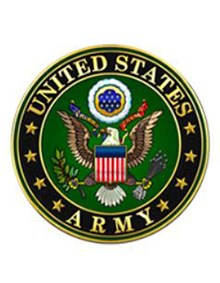March 2, 1930 ~ August 30, 2020 (age 90)
Richard Halloran, a longtime journalist who often referred to himself as "an ink-stained wretch," died on August 30, 2020 at his home in Boulder Colorado at the age of 90.
Halloran's career divided into thirds, writing about East Asia, covering military affairs, and taking on a mixed bag of investigative reporting, economics, and energy assignments. And he occasionally wrote about culture, art, and sports. He liked to think that he was helping to write the "rough first draft of history."
He spent ten years as a foreign correspondent in Asia for, successively, Business Week magazine, The Washington Post, and The New York Times. For another ten years he was a military correspondent for the Times, covering the Pentagon and the armed forces in the field.
After retiring from the Times in 1990, Halloran was Director of the Program on Communications and Journalism at the East-West Center in Honolulu, then editorial director of the now defunct Honolulu Star-Bulletin, and writer of a column called "The Rising East," about US relations with Asia.
Halloran was something of a "loner," preferring to be off by himself digging out a story rather than attending press conferences or government briefings. "I detest mob journalism," he told friends more than once. "Press conferences can be the world's worst form of communication."
Halloran was awarded a George Polk Award, often considered second only to the Pulitzer Prize, for his military coverage, the Gerald R. Ford Prize for reporting on national defense, and the US. Army's Outstanding Civilian Service Medal. He was also made an honorary member of the 100th Infantry Battalion Veterans Association.
He was awarded Japan's Order of the Sacred Treasure and given a Lifetime Achievement Award by the Pacific and Asian Affairs Council. Hawaii Pacific University made him a Fellow of the Pacific, an honorary degree.
Halloran wrote six books during his career, including "Japan: Images and Realities" and "To Arm a Nation: Rebuilding America's Endangered Defenses." He wrote about two prominent Japanese Americans, "Sparky: A Portrait of Senator Spark M. Matsunaga," and "My Name Is... Shinseki...and I Am a Soldier."
Richard Colby Halloran was born on March 2, 1930, in Washington, DC, the son of Paul James Halloran, a civil engineer who was a naval officer, and Catherine Lenihan Halloran. He grew up following his parents to bases in Brooklyn NY, Quantico VA, American Samoa, Portsmouth VA, Newport RI, and Norfolk VA.
Halloran earned an AB with distinction in government and international relations at Dartmouth College and an MA in East Asian Studies at the University of Michigan. He held a Ford Foundation Fellowship in Advanced International Reporting at Columbia University.
He enlisted in the Army in 1952 and was a distinguished graduate of the Infantry Officer School at Ft. Benning GA in 1953. As a paratrooper, he served in the 82nd Airborne Division before serving in Korea, Japan, Taiwan, and Vietnam. He also served several years in the Army Reserves.
Halloran is survived by his wife of 42 years, Fumiko Mori Halloran, and two daughters, Laura Colby Wilkason of Boulder, CO, and Catherine Anne Cook, of San Jose, CA, and five grandchildren. His son, Christopher Paul Halloran, died of cancer in 2015.



